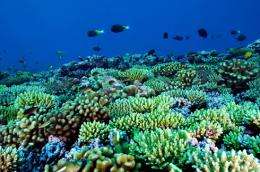How much is nature worth?

How much is nature worth? £1 billion? £100 billion? £1 trillion? The loss of our forests and biodiversity in general could cost us between £1.2-2.8 trillion a year, according to Pavan Sukhdev, who is giving this year’s Annual Science Lecture at the Natural History Museum on Monday.
In The Value of Nature lecture, Pavan Sukhdev will talk about this incredible cost of continuing to take nature for granted. He will also explain the costs and benefits of actions taken to reduce these losses.
Pavan is a senior banker at Deutsche Bank and is currently on secondment to the United Nations Environment Programme (UNEP) to lead the agency’s Green Economy Initiative, which includes The Economics of Ecosystems and Biodiversity study (TEEB), the Green Economy Report and the Green Jobs report.
‘Managing people’s desire for things like food, energy, water, and medicinal drugs in a way that reduces the impact on the planet’s diversity is no mean task,’ says Pavan. ‘Indeed this is the greatest challenge that faces society today.’
‘We can look at the world’s economy as a sub-set of the larger economy of the natural resources and ecosystem services that sustain us’.
Pavan wants natural or nature-based assets, such as coral reefs, to be considered in mainstream economic and policy planning.
Ecosystem services, for example in coral reefs, include things like fish nurseries and coastal defence, and are worth up to £104 million a year Pavan says.
‘An estimated half a billion people depend on them for livelihoods and more than a quarter of all marine fish species are dependent on coral reefs.’
Preserving the world’s protected areas, such as the Greet Barrier Reef, would come at no great cost to society. An annual investment of £25 billion would secure the delivery of ecosystem services worth £3 trillion.
Pavan will also highlight the dangers from climate change. Biodiversity (the variety of life on the planet) is increasingly being put at risk from the impact of greenhouse gases, which are increasing at an alarming rate.
Funding for the protection of endangered habitats is crucial in the fight against climate change.
Forests, for example, are the source of rivers, nutrients for agriculture, opportunities for eco-tourism and food. These so-called ecosystem services are instrumental in protecting vulnerable communities against the impact of climate change already underway.
Pavan Sukhdev gives The Value of Nature, Annual Science Lecture, in the Museum’s Central Hall at 19.30-21.00 on Monday 16 November.
Provided by American Museum of Natural History (news : web)

















